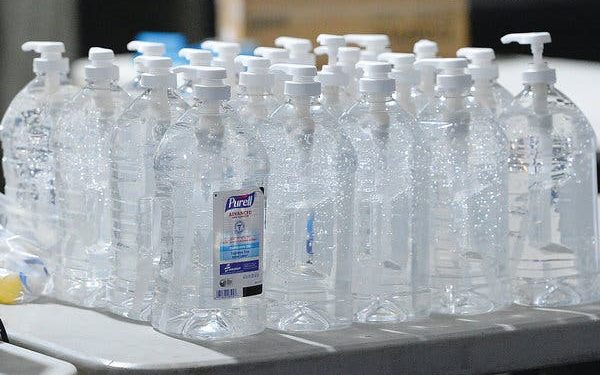Some Kenyan corporations have volunteered to produce alcohol-based sanitizers for free distribution to the public.
The Government has thus begun the process of sourcing ethanol to be used in the manufacture of these sanitizers.
In a letter from the Office of the President, dated 18th March 2020, Head of the Public Service Joseph Kinyua said the expedited manufacture of these sanitizers follows a recommendation by the World Health Organization (WHO) on the use of alcohol-based sanitizers, as a way of stopping the spread of COVID-19.
This note has been copied to KRA, NEMA, Director for Public Health, DCI, Kenya Ports Authority, Kenya Bureau of Standard (KBS), Kenya Pipeline and EACC.
According to Manal Mohammed, Lecturer, Medical Microbiology, University of Westminster- UK, alcohol attacks and destroys the envelope protein that surrounds some viruses, including coronaviruses.
This protein is vital for a virus survival and multiplication. But a hand sanitizer needs to be at least 60% alcohol in order to kill the coronavirus.
With shortages leading some people to try and make their own hand sanitizers, it’s also important to know these might not be as effective as commercially available products.
Since the outbreak of COVID-19, sales of hand sanitizers have soared. It’s become such a sought-after product that pharmacies and supermarkets have either hiked prices or are limiting amounts a customer can purchase at any one time.
Though hand sanitizers can help reduce our risk of catching certain infections, not all hand sanitizers are equally effective against coronavirus.
Medical evidence also suggests that even hand sanitizers containing 60% alcohol cannot remove all types of germs.
Studies have found that hand washing is more effective than hand sanitizers at removing norovirus, Cryptosporidium (a parasite that can cause diarrhoea), and Clostridium difficile (bacteria which cause bowel problems and diarrhoea).
Washing with warm water and soap remains the gold standard for hand hygiene and preventing the spread of infectious diseases. Washing with warm water (not cold water) and soap removes oils from the hands that can harbour microbes.
RELATED:Private Sector Lobby Advisory to Firms on COVID-19 Pandemic




